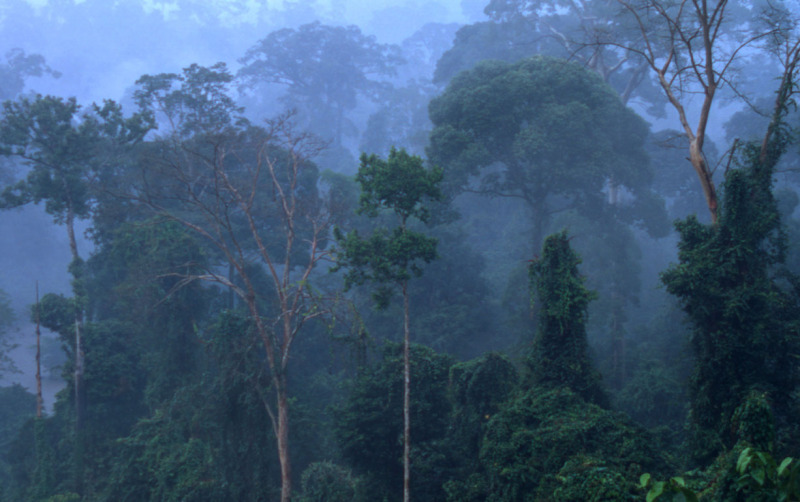A spectacular island paradise, Sumatra harbours four of the world’s most beloved species
When you think of a tropical forest, you might imagine dense foliage in many shades of green. Colourful flowers. Creatures like tigers, elephants, rhinos and orang-utans roaming free.
Today, there’s only one place where these four amazing animals live together.
Sumatra.
What’s at stake?
The tropical forests of the Indonesian island of Sumatra are among the richest and most diverse on the planet, sheltering many rare species. They provide livelihoods for millions of people.
The peat swamps beneath them are critically important too, storing vast amounts of carbon.
But Sumatra’s forests are being cut down at one of the fastest rates in the world. Almost half its natural forests have been lost since 1985, for timber and paper and to make room for palm oil plantations. Carbon emissions from this rapid deforestation are also contributing to global climate change.
Sumatra’s rhinos, tigers and orang-utans are all critically endangered. As their habitats are destroyed, endangered elephants are forced closer to human settlements. They eat crops, so people try to defend their property by any means. In many cases, elephants are being poisoned and killed.
Sadly, the illegal wildlife trade is rampant too. Tigers are hunted for their skins, rhinos killed for their horns, and orang-utan young are taken from the wild to sell as pets and entertain tourists.
The story so far
Together with local partners, we’re fighting for Sumatra’s future.
In 2008, working with national and regional authorities, we helped bring about the first island-wide commitment to protect Sumatra’s forests. It’s an important step toward a better way of managing land use in Sumatra, to conserve important habitats and promote sustainable forestry.
We also helped create the Tesso Nilo National Park to protect critical elephant and tiger habitats.
Much of the palm oil and paper in global markets comes from Sumatra, and huge areas of forest are still being cleared to develop plantations. Through our Global Forest and Trade Network (GFTN), which links producers , retailers and consumers committed to sustainable forestry, we’re supporting responsible forest management in Sumatra.
Did you know?
Sumatra is home to the world’s largest flower, the rafflesia (Rafflesia arnoldii) – it can be a metre wide and weigh up to 11kg. It’s also home to the tallest – the carrion flower (Amorphophallus titanum), which grows more than 2m high.
Facts and stats
- 15,000 – plants in Sumatra’s forests
- 473,606 sq km – area of Sumatra, the 6th largest island in the world
- 465 – bird species, 194 mammal species and 217 reptile species live in Sumatra
What next?
Stopping deforestation is a crucial part of fighting climate change. And that offers hope for Sumatra’s wildlife.
Indonesia has committed to reduce its emissions from deforestation and degradation. Donors such as the government of Norway are willing to provide funding in exchange for commitments to protect Indonesia’s natural forests, including Sumatra’s forests.
These schemes have the potential to be a win for everyone – slowing climate change, funding Indonesia’s development and protecting Sumatra’s extraordinary natural riches.
What you can do
- Buying certified sustainable products will help save the forests and wildlife of Sumatra. Always choose Forest Stewardship Council (FSC) certified paper and wood products.
- Look out for products made with sustainable palm oil, and ask retailers and manufacturers if they’re committed to using it.
- Learn more about Sumatra rich biodiversity and our work there to protect it by visiting WWF-Indonesia’s website.
***************************************
Join the myWWF Action Center
Be part of a global community of activists ready to take simple online actions that can help save wildlife and people. Sign up today!
***************************************














